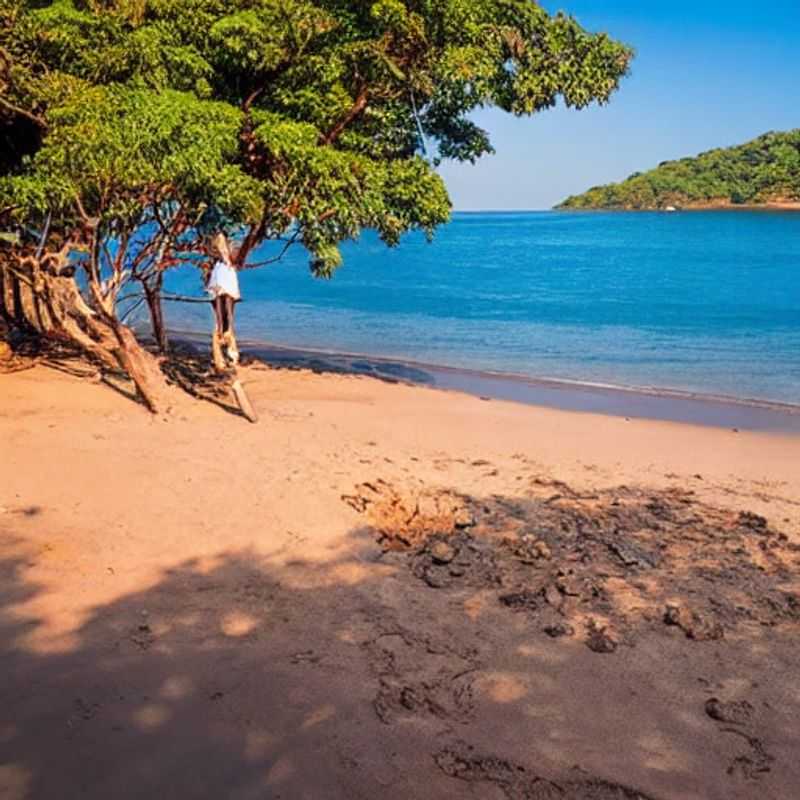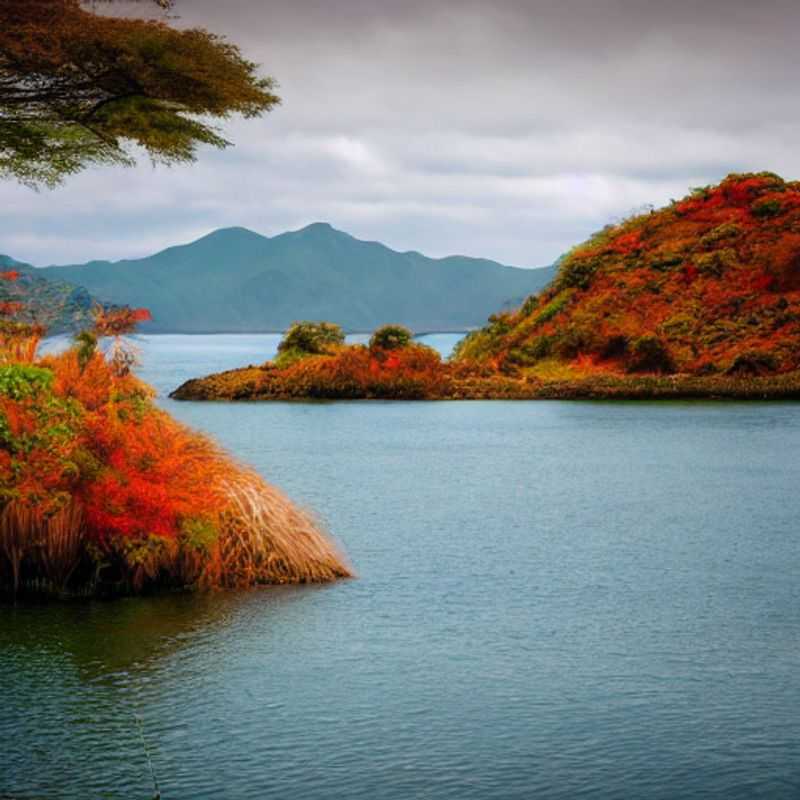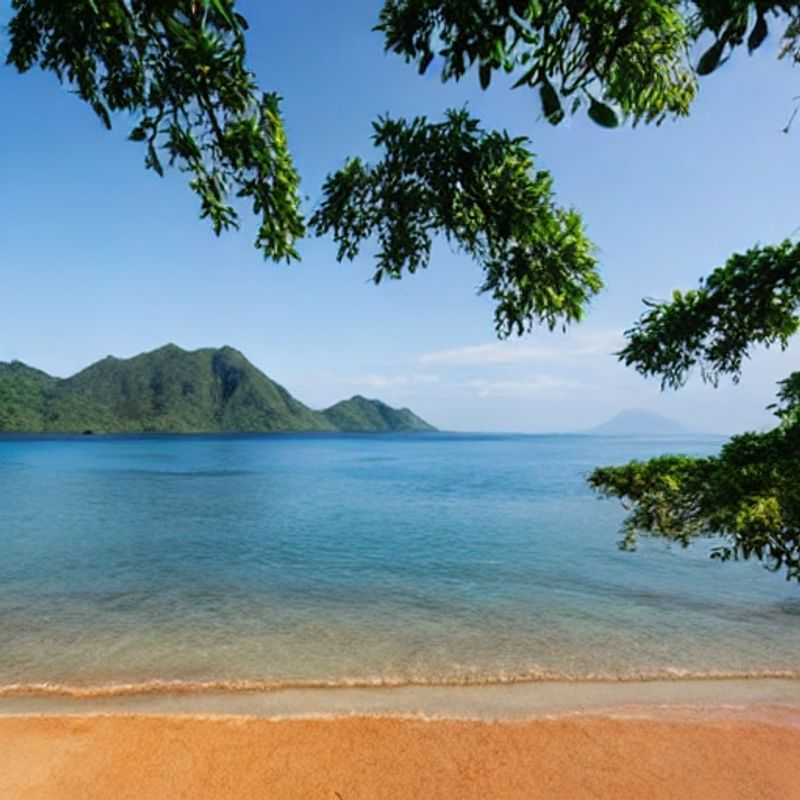Lago Malawi: 5 Lugares de Lujo Eco-Friendly Perfectos para Instagram

¿Es seguro para mochileros en 2026?
Resumen para mochileros: ¿Es seguro Tailandia en 2026?
Viajar a Tailandia en 2026 como mochilero sigue siendo una opción fantástica y generalmente segura. Si bien la seguridad general es alta, es prudente estar preparado. Las principales preocupaciones de seguridad para mochileros en Tailandia suelen girar en torno a delitos menores como carteristas y estafas turísticas, particularmente en áreas concurridas como mercados nocturnos y estaciones de autobuses. Mantener un ojo en sus pertenencias y ser escéptico ante ofertas "demasiado buenas para ser verdad" son consejos clave.
En cuanto a la salud, se recomienda tener un seguro de viaje integral que cubra emergencias médicas. Consultar con su médico sobre las vacunas recomendadas y tomar precauciones contra picaduras de mosquitos (usando repelente) para prevenir enfermedades como el dengue son medidas importantes. El agua del grifo no es potable, así que beba siempre agua embotellada.
Las leyes y costumbres locales deben ser respetadas en todo momento. La vestimenta modesta es necesaria al visitar templos. Tenga cuidado con las drogas ilegales, ya que las penalizaciones son extremadamente severas. Para el transporte, el uso de taxis con taxímetro o aplicaciones de transporte confiables puede ayudar a evitar sobreprecios. Alquilar motocicletas es popular, pero solo si tiene experiencia y licencia válida, y siempre use casco.
En resumen, Tailandia en 2026 ofrece una experiencia de mochilero enriquecedora y segura si se toman las precauciones adecuadas. Estar informado, ser precavido y respetar la cultura local le asegurará un viaje memorable y sin incidentes.
Lago Malawi: 5 Paraísos de Lujo Eco-Sostenible Perfectos para Instagram
¡Jambo, amantes del ecoturismo!

También te puede gustar
¡Calor, multitudes y el paraíso Instagrammable! Lugares de lujo en el Lago Malawi para el ecoturista (y cómo sobrevivir al calor)
El Lago Malawi en temporada alta: ¿Paraíso o purgatorio? Consejos para el ecoturista con aspiraciones de influencer.
Selvas, sol y selfies: Lucha contra las multitudes y el calor en los mejores lugares de lujo del Lago Malawi.
Safari de lujo y #nofilter: Cómo disfrutar el Lago Malawi en temporada alta sin morir en el intento (ni perder tu estilo).
Misterios, mitos y millones de Me Gusta: Explorando los rincones más exclusivos del Lago Malawi para el viajero ecológico.
El Lago Malawi: Descubriendo sus tesoros ocultos (y escapando del calor sofocante) en temporada alta.
Entre leyendas y likes: Una guía para el ecoturista sofisticado en el Lago Malawi.
¡Hola, amigos viajeros! Jambo! Your friendly neighborhood safari guide here, ready to spill the beans on Lake Malawi during its peak fall season. Think turquoise waters, sun-kissed beaches…and maybe a few more sun-kissed tourists than you’d ideally prefer. This is a paradise for eco-tourists, but be warned: peak season means crowds.
The weather in fall (September-November) is glorious. Think warm, sunny days perfect for swimming and watersports. Evenings get cooler, so pack a light jacket. Expect average temperatures around 25-30°C (77-86°F), but be prepared for intense heat during the day, especially around midday. Hydration is key, amigos!
Now, about those crowds. Lake Malawi is popular during this time. Expect busy beaches, especially around popular spots like Cape Maclear. But don't despair! There are still plenty of secluded coves and islands to explore if you're willing to venture a little further. Embrace the vibrant atmosphere; it’s all part of the adventure!
As for local culture, the Chewa people are known for their rich traditions, including vibrant dances and storytelling. You might catch a local performance – a fantastic cultural immersion! The food is delicious and fresh. Nsima (a maize porridge), often served with fish from the lake, is a staple. You can expect to pay around 5,000-10,000 Malawian Kwacha (MKW) for a delicious meal at a local restaurant.
Transportation around the lake is usually via minibus or boat. Minibus rides cost between MKW 1,000-5,000 depending on the distance, while boat trips vary wildly. A boat trip to a nearby island could be around MKW 15,000-30,000, depending on the distance and the size of the boat.
Activities are abundant! Snorkeling and diving are top picks, showcasing the lake's incredible biodiversity. Expect to pay around MKW 20,000-50,000 for a diving trip. Hiking along the lake's shores is another fantastic option; completely free, unless you want to hire a local guide, which can cost MKW 10,000-20,000 per day. The soundscape is mostly a delightful mix of birdsong, the gentle lapping of waves, and possibly some lively Malawian music playing from a nearby bar.
Expect to see a mix of fellow travelers – everything from backpackers to families – all enjoying the lake's beauty. The local people are incredibly friendly and welcoming, so don't hesitate to strike up a conversation. They often have amazing stories to share about the lake's legends and history.
Now, the nitty-gritty: A seven-day solo trip to Lake Malawi during peak fall season, including budget accommodation, local food, transport, and a few activities, can cost you anywhere from MKW 250,000 – 500,000 (approximately $300-$600 USD). This is a rough estimate and can vary greatly depending on your spending habits and chosen activities. Always carry local currency as a backup, but credit cards are sometimes accepted in tourist areas.
Remember to be respectful of local customs and traditions. Enjoy the stunning landscapes, delicious food, and the warm hospitality of the Malawian people! Have a fantastic adventure!

Qué deben saber los mochileros antes de visitar en 2026
Aquí tienes un resumen en español para un artículo de HTML sobre lo que los mochileros deben saber antes de visitar en 2026, diseñado para ser W3C compatible y utilizando las etiquetas especificadas.
Prepárate para tu aventura de mochilero en 2026 con esta guía esencial. Para empezar, investiga a fondo sobre visados y requisitos de entrada, ya que pueden cambiar. Asegúrate de tener tu presupuesto bien planificado, considerando gastos de alojamiento, comida, transporte y actividades; los costos pueden variar significativamente.
En cuanto a la seguridad, es crucial informarse sobre las zonas seguras y las que es mejor evitar. Mantén tus pertenencias siempre vigiladas y utiliza candados de seguridad en tu equipaje. El seguro de viaje es un elemento no negociable; asegúrate de que cubra atención médica y posibles cancelaciones.
La comunicación será clave. Considera la compra de una tarjeta SIM local para acceder a internet y mantenerte conectado. Familiarízate con el transporte público local, ya que suele ser la opción más económica y una excelente manera de experimentar la cultura. Aprender algunas frases básicas en el idioma local abrirá puertas y facilitará interacciones.
Para una experiencia auténtica, busca alojamientos locales o interactúa con la comunidad. Respeta siempre las costumbres y tradiciones locales; infórmate sobre el código de vestimenta y las normas de etiqueta. Finalmente, mantén una actitud flexible y abierta, ya que los viajes de mochilero a menudo implican lo inesperado, ¡y esas son las aventuras que más recordarás!